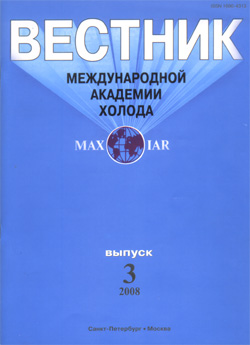
Hydrolysis process of fish cannery by-products

Annotation
A significant amount of fish by-products is accumulated in Kaliningrad region fish processing plants during the year. This is underutilized source of natural peptides of high biological activity. One can see the intensification of researches to obtain active peptide fractions from fish by-products nowadays. Head and scales of sardines and sardinellas, and backbone of sardines have been analyzed experimentally. The general chemical composition of fish by-products has been studied. The scales are shown to be the main source of protein (56.7 – 60.5% of dry matter), it containing only minimum amount of fat. The minerals content is rather high (10.9-12.1% of dry matter). Disintegration processes of raw material proteins to obtain low molecular weight products have been analyzed by four different types of hydrolysis: thermal, enzymatic, enzymatic-thermal and enzymatic-thermal ones with raw materials pre-washing. Biological value of the active peptides obtained has been established. Sediments of the hydrolyzed systems have been investigated. Significant protein yield (up 91.7%) in all raw materials types has been observed by combined type of hydrolysis. The highest concentration of the peptide fractions with molecular weight less than 10 kDA has been identified in enzymatic hydrolysis samples (up 98.1%). The peptides obtained by enzymatic and enzymatic-thermal hydrolysis are recommended as a protein component for multi component production of dietary supplements for sports nutrition. Scales peptides are the most preferred due to their organoleptic characteristics.
Keywords
Постоянный URL
Articles in current issue
- Mild heat sterilization for production of canned food with high vitamin content
- The use of Jerusalem artichoke for coffee substitute manufacture
- Beer technology with the use of malt from triticale
- Yeasts in modern biotechnology*
- Effect of acetic acid and enzyme preparations on bread stability and freshness
- Gas booster compressor operation at variable inlet pressure
- Exergy analysis of powdered product from thin stillage technology using steam ejector heat pump
- Device for refrigeration treatment of food with carbon dioxide recirculation
- Study of floating condensing for energy saving on refrigeration plants in tropical areas
- The influence of the compressor oil viscosity and fullerenes C60 additives in the oil on the energy efficiency of refrigeration compressor system
- Analytical model of condensation in mini dusts
- Integrated description of temperature oscillations, energy balance and cryosphere of the Earth under the influence of the solar constant variations with the use of electro-thermal analogy
- Simulation of wort heating process due to the wort distillate vapor condensation heat and stillage cooling
- Simulation of evaporation and condensation processes into the channels of regenerative heat exchangers
- Analysis of COP thermodynamic cycle LBAC with two-level absorption when obtaining negative temperatures of cooling
